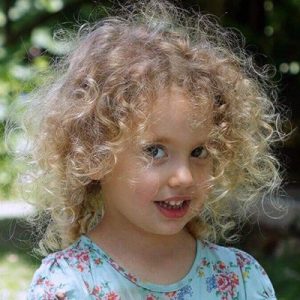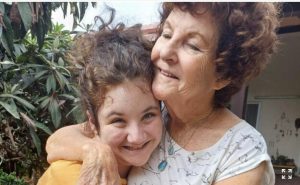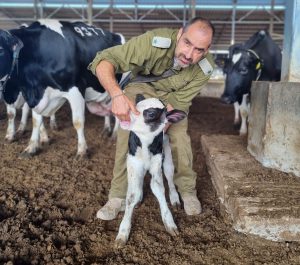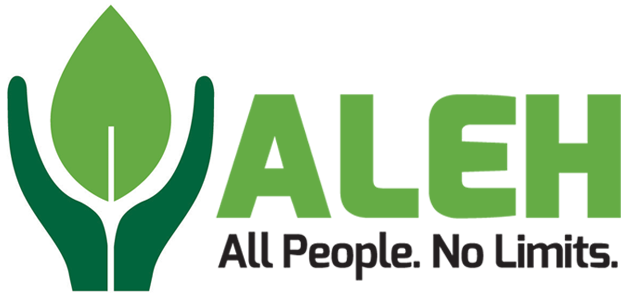Reduced Inequalities


Israel’s Technological Solutions Creating More Inclusivity for the Disabled
Take a look around Israel (it’s not a big country) and it isn’t hard to notice that change for the disabled is afoot. Here are a few prime examples of some incredible Israeli initiatives:
1. The Israel Innovation Authority (did you know there was one?), The Finance Ministry and Foundation for the Development of Services for the Disabled at the National Insurance Institute granted approximately NIS 6 million to 13 companies this year to support the research and development of assistive technologies for people with disabilities. This kind of support represents not only the benevolence of these institutions, but there’s something in it for the country, too.
“Impact ROI” (return on investment) means investment in technologies that will help people with disabilities integrate into society and contribute to the country’s gross domestic product. Says Naomi Krieger Carmy, head of the Societal Challenges division at the IIA, “It is turning someone who relies on welfare and is at home into someone who is working and contributing to GDP.”
One of the recipients of the IIA grant, is Sesame Enable, founded by Oded Ben Dov. His hands-free app, “Open Sesame”, allows people with amyotrophic lateral sclerosis (ALS), spinal cord injuries, or other medical challenges that limit the use of hands, to use their heads instead. Using the front-facing camera of any Android device, Open Sesame tracks head movements to unlock touch-free texting, social activity, Web searching and much more.
2. ALEH (a non-profit organization that provides a wealth of care for the disabled) and the Construction and Housing Ministry and Merhavim Regional Council will join forces to develop a new, inclusive town in southern Israel. The town will be named Daniel, after four-year-old Daniel Tregerman, who was killed in 2014 when a mortar fired from Gaza struck his home on Kibbutz Nahal Oz.
“Daniel will create an inclusive community, where individuals with disabilities will be treated with the utmost dignity and respect and enjoy full access to necessary medical and special educational support,” said ALEH Negev-Nahalat Eran director-general Avi Wortzman.
The town will be constructed west of Ofakim, adjacent to ALEH Negev-Nahalat Eran, the network’s southern-based rehabilitative village. Daniel will integrate residents with severe, complex disabilities into the community, as well as provide housing for medical professionals at ALEH’s new neuro-orthopedic rehabilitation hospital, which is slated to open on the ALEH Negev-Nahalat Eran campus early next year. 500 housing units are expected to be built, and the hope is to start selling apartments within two years.
Daniel sounds like an ideal place to live – with green spaces and pretty houses, open to religious and non-religious alike. “A child raised in this kind of place will be a healthier kid,” said Wortzman. “I see this as a utopia where children with disabilities and others will be able to live together and interact with each other. I am considering living there myself.”
3. Migdal or is a multi-service center dedicated to advancing people with blindness or visual impairment towards independent functioning and inclusion in the workplace. Utilizing assistive technologies, the disabled receive individualized training and instruction. Some of the technological tools include optical magnifiers, canes, color-detector and tactile technologies for computers or mobile phones, and customized software and smartphone apps.
Shiri Hochman, director of the division for diagnosis, training and placement, says, “Many lose sight during their time of employment, for age-related or other reasons and they often stop working as a result. With assistive technology, they can remain productive members of society.”
Read more about these initiatives and others at https://www.jpost.com/Magazine/Is-Israel-creating-a-utopia-for-the-disabled-574837


SDG 10 – World Children’s Day in Israel
Reduced Inequalities “For every child, every right” – so goes the UN’s theme for this year’s World Children’s Day (November 20). Does that also hold for


SDG 10 – Surviving War with Disabilities
Reduced Inequalities More than 1.6 million Israelis (20% of the population) are recognized as persons with disabilities. That was before the current war; hundreds more


SDG 10 – Civil Society Steps Up
Reduced Inequalities It’s no secret that Israel’s civil society organizations are among the most robust in the world. Now operating in the shadow of war,




















